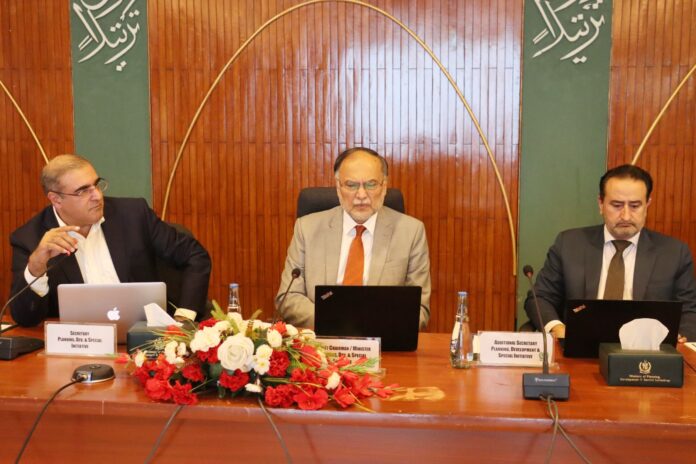The Central Development Working Party (CDWP), chaired by Federal Minister for Planning, Development & Special Initiatives, Ahsan Iqbal, approved ten development projects, totaling Rs249.17 billion. Four of these projects, with an estimated cost of Rs21.83 billion, were approved at the CDWP level, while six major projects worth approximately Rs227.34 billion were referred to the Executive Committee of the National Economic Council (ECNEC) for final approval.
The meeting was attended by senior officials from the Planning Commission, provincial governments, and relevant ministries. The discussed projects span key sectors, including transport, environment, higher education, and information technology.
Among the approved projects, the “Expansion of Safe City, Islamabad” stands out with an allocation of Rs7.5 billion. This project aims to expand surveillance across the capital, covering 100% of Islamabad, including roads, VVIP areas, and government buildings. It will increase the number of surveillance cameras from 13 to 28 police stations, as well as introduce advanced technology such as facial recognition systems and automatic number plate recognition.
Another notable project is the “Establishment of National Centre for Quantum Computing (NCQC)” with a budget of Rs3.31 billion. This initiative aims to enhance Pakistan’s technological edge, focusing on fields like AI, cybersecurity, and climate modeling. The center will involve collaborations with institutions such as HUB, UET, GIKI, and NED.
The CDWP also approved the rehabilitation of railway track maintenance machines at Rs5.31 billion and a Punjab Clean Air Programme worth Rs5.7 billion, focusing on improving air quality through electric vehicles and anti-smog agricultural practices.
Several transport and communication projects, including road dualization in Khushab, Gujranwala, and Chishtian, were referred to ECNEC, along with a Rs155.4 billion highway reconstruction project under the Resilient Recovery Framework, primarily funded by the AIIB.
These initiatives are part of the government’s broader development strategy to address critical infrastructure needs and drive economic growth in the coming years.




